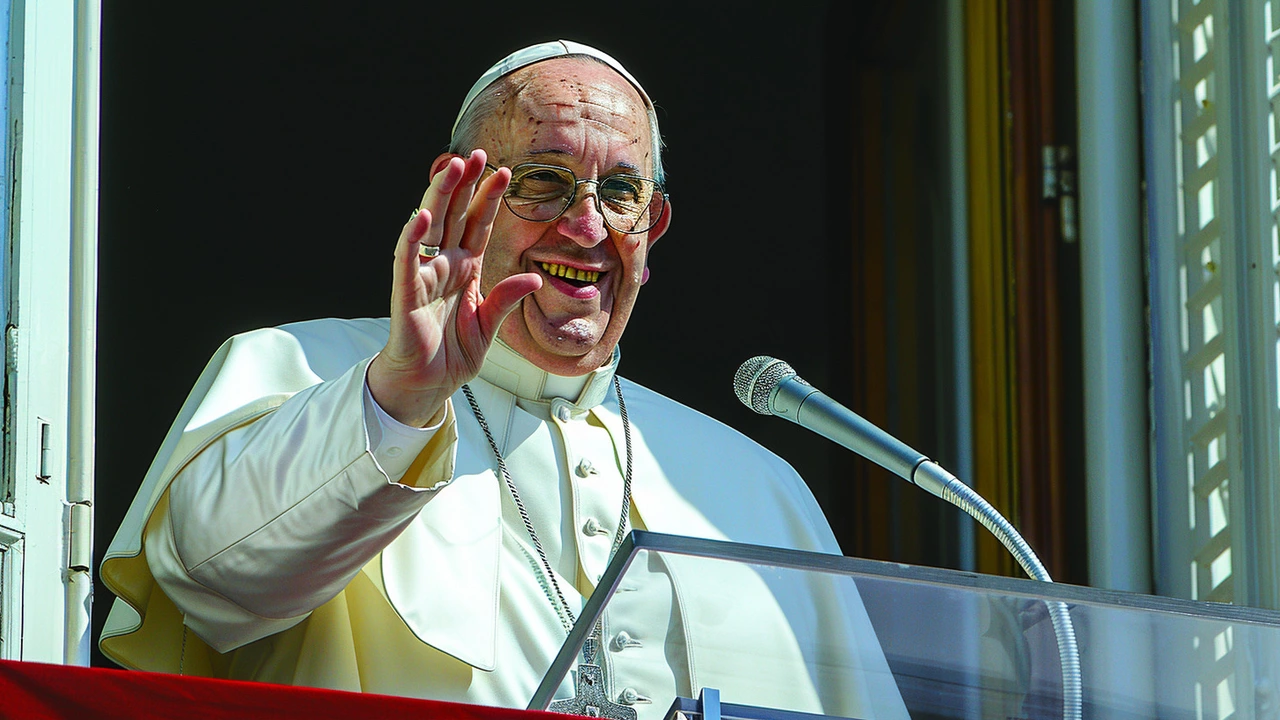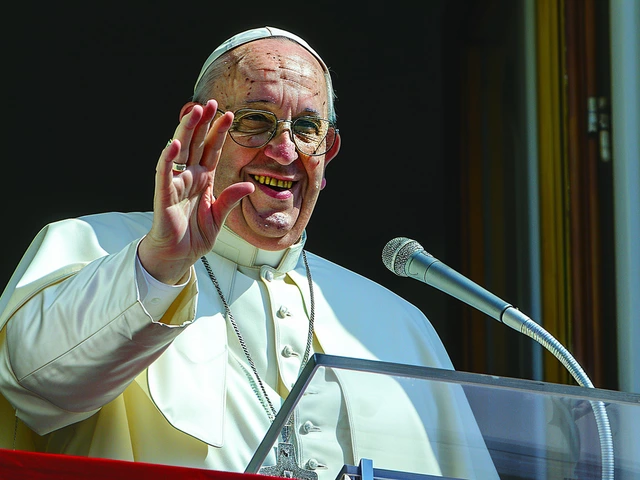Pope Francis Issues Apology Following Controversial Remarks
Pope Francis has recently found himself in the midst of a controversy after using a derogatory term concerning the LGBT community during a private meeting with Italian bishops. This incident occurred on May 20, 2024, and has since drawn widespread attention and criticism. According to Italian media outlets such as Dagospia, the Pope used the term 'frociaggine,' which translates roughly to 'faggotry,' in response to a question about whether individuals from the LGBT community should be permitted to train for the priesthood, provided they adhere to celibacy.
The use of such a term by the Pope has sparked significant backlash, particularly given his previous statements and actions aimed at outreach and inclusivity for LGBTQ+ Catholics. In a statement released by Vatican spokesperson Matteo Bruni on May 28, 2024, the Pope expressed his regret and extended an apology to those who were offended by his choice of words. Bruni clarified that Pope Francis did not intend to offend or express homophobic sentiments.
Context of the Remarks
The Pope's controversial comments came during discussions about a new document that outlines training for seminarians in Italy. This document aims to provide some degree of flexibility in the Vatican's longstanding ban on gay priests—a ban that was put in place in 2005 and reaffirmed in 2016. While the Catholic Church has maintained this ban, discussions are ongoing about whether individuals from the LGBT community could be allowed to train for the priesthood if they observed celibacy.
During the meeting, Pope Francis reportedly joked that 'there is already an air of faggotry' in seminaries. This attempt at humor has been met with criticism for its insensitive nature and the use of an offensive term. It stands in stark contrast to the Pope's reputation as someone who has made significant strides in fostering a more welcoming and inclusive church.
The Church's Stance and Reaction
This incident highlights the ongoing struggle within the Catholic Church to reconcile traditional doctrines with a more modern, inclusive approach toward the LGBT community. The Church has long held a complicated relationship with LGBTQ+ individuals, with teachings often seen as outdated and discriminatory by contemporary standards.
While Pope Francis has previously shown a more progressive stance—famously stating 'Who am I to judge?' in 2013 when asked about gay individuals—his recent comments indicate the challenges that remain. Bruni, the Vatican spokesperson, reiterated that the Pope remains dedicated to an inclusive and welcoming church. 'Nobody is useless, nobody is superfluous, [and] there is room for everyone,' Bruni said during the statement.
For many observers, the Pope's apology is a step in the right direction, but also a reminder of how much work still needs to be done to truly embrace inclusivity within the church. The remarks have led to renewed calls for clearer guidelines and more sensitive language when addressing issues related to the LGBT community.
A Rare Misstep
Pope Francis is generally known for his empathy and outreach efforts, especially toward marginalized communities. His words in this instance appear to be a rare misstep in a papacy that has often been marked by a focus on mercy, understanding, and inclusion. This incident serves as a reminder of the immense impact that words can have, especially when they come from such a prominent and influential figure.
The apology and clarification issued by the Vatican underline the importance of careful and respectful dialogue, particularly on sensitive issues such as the rights and inclusion of LGBT individuals within the church. It also brings to the forefront the broader ongoing debate within the Catholic Church about how to approach modern social issues in a way that is both faithful to doctrine and compassionate to all individuals.
What Lies Ahead
Moving forward, it will be essential for the Vatican to continue its efforts to create an environment where honest and respectful discussions can take place. The church must navigate the difficult balance of upholding its traditions while evolving to meet the needs and realities of contemporary society. The recent controversy shows that while progress has been made, there is still a long journey ahead.
Observers and members of the Catholic community alike will be watching closely to see how Pope Francis and the wider Church address these challenges. The Pope's willingness to apologize and affirm his commitment to an inclusive church may offer hope to those who feel marginalized, but it is clear that words alone are not enough. Action and continued effort toward genuine inclusivity are essential.
Pope Francis' papacy has been characterized by a desire to reach out and build bridges with various communities. His efforts to embrace those who have often felt excluded from the church demonstrate his commitment to a more inclusive faith. However, as this incident reveals, the path to inclusivity is complex and fraught with obstacles. The Pope’s apology and dedication provide a foundation, but much remains to be done to achieve a truly inclusive and welcoming church.

